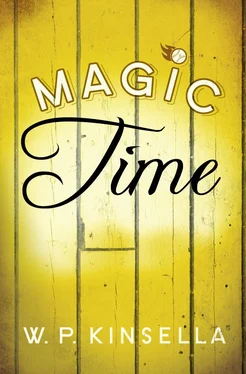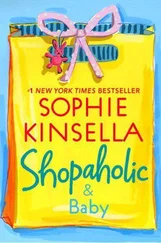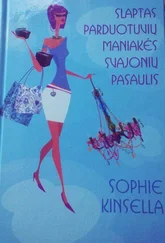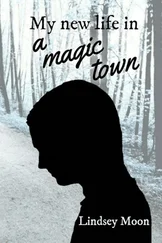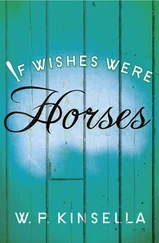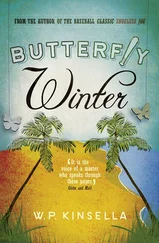‘I don’t understand,’ I said. ‘McCracken has great control. I went over his stats in back issues of the local paper. They don’t always print box scores but the ones I could find show McCracken only walks 2.1 batters per game and averages 6.4 strikeouts.’
‘You don’t miss a trick, do you?’ said Roger. ‘But it’s a strategy, trust me.’ And he smiled once again, his teeth glinting like porcelain.
We had another practice Friday evening. I’m afraid we didn’t look very good. Byron reported that someone from McCracken’s team was sitting in a pickup truck about three blocks down the street, studying us through binoculars, hoping to get a glimpse of Roger in action.
Roger did not pitch. Our regular pitcher, Dusty Swan, who I had recruited to play third base because our regular third-base man was in California, threw batting practice.
‘I want you guys to lay back and wait for the fastball,’ Roger told us. ‘McCracken’s got a killer curve, a mean slider, a big-league change-up you can break your back on. But his fastball’s nothing. He uses it to set up his other pitches. If we can keep from swinging at anything outside the strike zone, he’ll give up lots of walks. Then he’ll have to throw the fastball and, when he does, we’ll hammer it.’
Though Roger’s strategy went against McCracken’s statistics, it was Roger’s game, and Roger’s money was bet on it.
All that week, in the afternoons, Roger Cash worked out at the abandoned ball field behind the lumberyard. Sometimes I acted as his catcher, but more often he employed Walt Swan, a brother to Dusty. He paid Walt five dollars cash after every workout.
In the evenings, accompanied by his trusty road atlas, he played the mileage game in every bar in the area. Dad heard at work that Roger was picking up several hundred dollars in winnings each night.
‘It’s also a way for me to become known real quickly,’ Roger said. ‘It will help assure a good turnout for the game on Sunday.’
By the end of his third evening in town he had a very pretty brunette on his arm. She had a pleasant laugh, a crooked smile, and pale brown, almond-shaped eyes. She was a cocktail waitress at Hot Mama’s on the outskirts of town. Her name was Jacqueline, and she spent the rest of the nights that week in Roger’s room, except the night before the big game.
‘Do you have any objection, Gil,’ Roger asked my dad our first night at supper, ‘to my having occasional female company in my room?’
Dad looked up from his chicken-fried steak.
‘You can bring a goat to your room as far as I’m concerned,’ he said, ‘as long as you’re quiet.’
FOUR Contents Title Page Magic Time BY W. P. KINSELLA Copyright The Friday Project An imprint of HarperCollins Publishers Ltd 77–85 Fulham Palace Road Hammersmith, London W6 8JB www.harpercollins.co.uk This ebook first published in Great Britain by HarperCollins Publishers Ltd 2014 Copyright © W. P. Kinsella 2001 Cover design © HarperCollins Publishers Ltd 2014 W. P. Kinsella asserts the moral right to be identified as the author of this work. FIRST EDITION A catalogue copy of this book is available from the British Library. This novel is entirely a work of fiction. The names, characters and incidents portrayed in it are the work of the author’s imagination. Any resemblance to actual persons, living or dead, events or localities is entirely coincidental. All rights reserved under International and Pan-American Copyright Conventions. By payment of the required fees, you have been granted the non-exclusive, non-transferable right to access and read the text of this e-book on screen. No part of this text may be reproduced, transmitted, downloaded, decompiled, reverse engineered, or stored in or introduced into any information storage and retrieval system, in any form or by any means, whether electronic or mechanical, now known or hereinafter invented, without the express written permission of HarperCollins. Source ISBN: 9780007497577 Ebook Edition © July 2014 ISBN: 9780007497584 Version 2014-07-31 Prologue 1: Judging Distances ONE TWO THREE FOUR FIVE 2: One Road Runs Straight SIX SEVEN EIGHT NINE TEN 3: Fred Noonan’s Town ELEVEN TWELVE THIRTEEN FOURTEEN FIFTEEN SIXTEEN 4: Barry McMartin SEVENTEEN EIGHTEEN 5: Safe at Home NINETEEN TWENTY TWENTY-ONE TWENTY-TWO TWENTY-THREE 6: Magic Time TWENTY-FOUR TWENTY-FIVE TWENTY-SIX TWENTY-SEVEN Also by the W.P. Kinsella About the Publisher
It was during that week before the challenge game, that I found out a lot about distances myself. Like myself, most of my friends were just discovering girls. Most of our discoveries involved talk. We talked about the mystery of them, we talked about them individually and collectively, often in a disparaging manner learned from older boys at the Springtime Café or the Main Street Pool Hall.
Byron had gone to the movies a number of times with a green-eyed girl named Janice, who wore no lipstick or make-up because her family belonged to a fanatical religious group that thought the end of the world was imminent, and that everyone should be in a natural state when the end came.
‘I asked her why she wears clothes,’ Byron said, after his fourth and final date, ‘and she said, “Modesty. The Lord expects modesty from all His creations.”’
It was on that date he discovered the only reason her parents let her go out with him was that he seemed a likely candidate for conversion. That evening, when they arrived back at her house after the show – her father drove them to the movie and picked them up at the Springtime Café afterward – their preacher, Pastor Valentine, and eight members of the congregation were camped in Janice’s living room, which, Byron said, was decorated like a church.
Pastor Valentine conducted an impromptu service, and every- one prayed loud and long for Byron’s wandering soul. They said many unkind things about the Catholic Church in general and the Pope in particular, having wrongly assumed, I suppose because of our last name being French, that Byron was a practicing Roman Catholic. We had never attended any church, and Dad said our family had had no religious affiliation for at least three generations. ‘I have no intention of breaking with tradition,’ Byron said.
Meanwhile I was in love for the first time. Or, more accurately, I had let being in love move from my imagination to real life. Her name was Julie Dorn, and I had become enamored of her just at the end of the school year. She was a farm girl, almost my height and fifteen pounds heavier. She was clean-up hitter for the high-school girls’ softball team, and I liked her because she wasn’t a giggler, and always looked me in the eye when we talked. She drove a four-ton grain truck to school.
I was attracted to her straightforwardness, her toughness. Julie tolerated my interest in her, but made it plain she would prefer a more masculine beau, probably one of the broad-shouldered farm boys who knew how to deliver calves and had bronzed arms the size of fence posts. She often teased me about my ignorance of farms and was slightly contemptuous of what she saw as my lack of physical strength. Also, she wasn’t impressed by my baseball playing, even though I was often the star of the team both offensively and defensively. She preferred to watch the boys she was attracted to grunt like dinosaurs on the football field. To add to my woes, I didn’t drive yet. Julie had been driving farm equipment since she was ten years old.
I called on her about once a week, walking the three miles of narrow pavement that passed her family’s farm. She would entertain me in the dark parlor, or we would walk in the sweet dusk, watching fireflies rising, sparkling, dissolving in our path. We even kissed a few times. But Julie never let me forget that my interest in her was much greater than her interest in me.
Читать дальше
